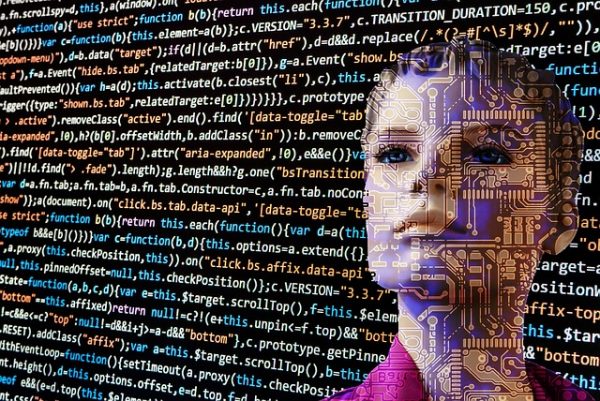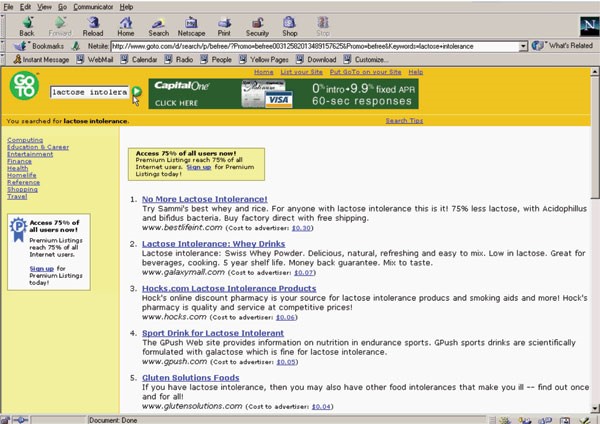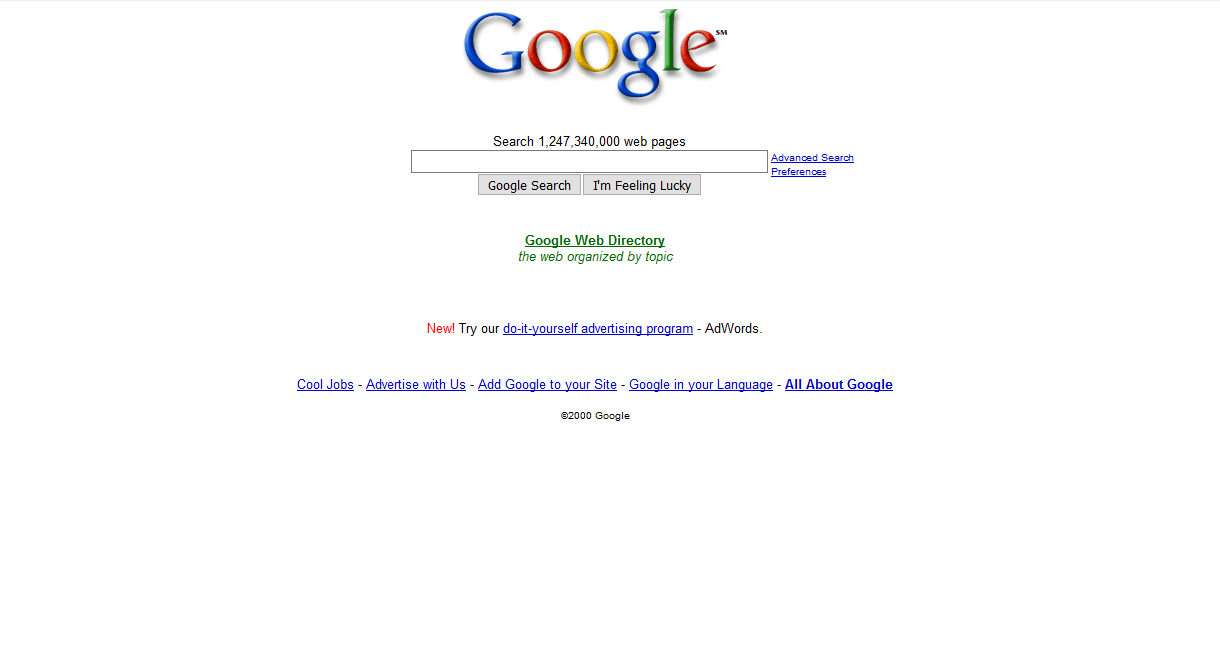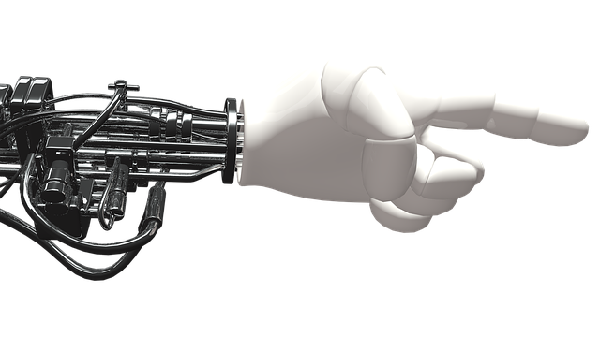We are well on our way with the fourth Industrial Revolution, and the internet is alive … almost.

All around the web are speculations regarding artificial intelligence (AI) and the future of our civilization. The idea that computers will take over the majority of jobs in the workplace today has become well accepted. Some careers will be destroyed, although many more will be born as a result.
From the great benefits to the potential risks to our species, some of our modern day economic titans have expressed their hopes and concerns. A few examples …
Warren Buffett stated that he believes AI will kill jobs but is ultimately good for society.
Elon Musk is attempting to morph nature and technology with his new idea for Neuralink, a company he is launching to merge man and machine.
And Mark Cuban thinks that the world’s first trillionaire will be as a result of AI.
So what? How does this affect your day to day, or even your future?
What if I said that this future applies to PPC search engine marketing? We’re talking about the wave of SEM automation and the not-far-off day when search engine marketing runs itself.
PPC’s History
To understand the trajectory of SEM automation, let’s take a brief look at PPC history. Goto.com successfully pioneered the pay-for-placement search marketing business model, which at the time was strictly based on pay-per-click.
The more a company was willing to spend per click, the higher its ad would appear in the sponsored ads section of the search engine results page. So the companies with more money to invest were able to gain an advantage.

Goto.com search engine results page screenshot in 2001.

Google.com home page screenshot in 2001.
Then Google launched AdWords and improved the previous business model.
They incorporated good user experience into the judgment of placements on the search results pages and rewarded advertisers with lower CPCs and better positions. Advertisers with better quality ads and bigger budgets had an advantage.
Over the years, more improvements were introduced, giving advertisers more control over how their ads were displayed, allowing for a more targeted approach, resulting in a lower CPA for them and more targeted ads for their customers.
With more advertisers adding product after product to their advertising portfolios, managing thousands of campaigns, ad groups, keywords and bids became a real challenge for both agencies and business owners.
Smart Automation Ramps Up in SEM
With all of the bidding options offered by Google, it was a difficult managing all of them efficiently.
So bid management tools were developed. As the industry grew, there were constant new opportunities to improve an advertiser’s efficiency with their Return on Ad Spend (ROAS).
Since the opportunities were too many, machine learning bots were introduced to monitor, learn and run much of the bidding off of history, device, time of day, location, etc. We use the power of PPC automation tools to automate some of the common tedious and time-consuming tasks associated with data gathering and CPA optimization. Paid search campaigns are efficiently and automatically 48 times each day — far more than a human alone can adjust.
Every day, the bots monitor and gather more information, allowing them to make better decisions. Each time a user conducts a search, it is a new opportunity for the bots to learn to become more efficient in maximizing profits and decreasing an advertiser’s wasted spend.

Each account becomes a custom bidding portfolio, assuming it has been set up correctly. Over time and with data, the bots learn, increasing either click-through percentage or increasing conversions while lowering CPAs/CPLs, depending on the client’s needs.
In time, the automation portion of web marketing increases alongside AI, providing an effective, streamlined marketing experience, while providing a better user experience, which results in more profits for the search engines.
We see news about machine learning technologies in the online advertising space every day, and platforms are being built and leveraged in this space more and more.
Today’s Machine Learning Advances
So who is the real winner when every business gets to take advantage of machine learning? Everyone involved! Why?
Advertisers win because the bots optimize for their specific website and its audience, factoring in all traceable micro-moments in the process. There will always be competition for traffic and conversions, but since each site is slightly different, this allows for the bots to optimize for that specific site and its audience.
If a site is winning conversions at a certain time of day with a certain set of keywords, the competitors can also win, either with a slightly different set of keywords or slightly different times of day. Where two advertisers go head to head on a specific set of keywords at a specific time of day, account structure usually wins, as better structured accounts usually have a higher Quality Score.
Search engines win because a better user experience means more clicks which results in more exposure and more revenue.
What’s Next for PPC?
Why isn’t all of this automated yet? Ideally, I believe we need to be living in a digital world where a non-tech-savvy small business owner has access to an SEO-optimized website generated by a smart bot.
The only work for the business owner is to fill a questionnaire with business and industry information, a way to guide the bot in the right direction.
Data and analysis of it by artificial intelligence should allow for an effective site to build itself, customizing and building for user experience.
Once the site is built and ready, the social media bots can begin the buzz to introduce the brand to the public.
Meanwhile, based on industry information gathered about the business and its competitors, an effectively built SEM account emerges, applying years of learnings and best practices to begin and improve performance, to hit and exceed the client’s goals.
The bots will do it all, with the small business owner having zero knowledge of how the industry works. All he or she knows is that it works well and provides a positive return on investment, which is enough reason to increase budgets and ultimately profits.

The best part is that digital marketing applies to just about all industries, growing businesses time and again, industry after industry. So when will SEM run itself? In many ways, the transitioning is happening now.
And what does a business need to do to take advantage of the advantages provided when robots fine tune and manage SEM?
Although on our way, I think it will still be a long time before the industry is efficiently automated. Until then, the business opportunities need to be captured through a competent search marketing agency which utilizes nearly two decades of experience in building and scaling performance-driven client campaigns through experience and data.
Success is assessed through efficient client account growth, achieved in time through intelligence and effort. After twenty-plus years helping shape this industry, we have built the talent and environment to start your efficient paid digital campaigns, or if you already have one, scale it to the next level.
Are you ready to increase your digital profits? Contact us today.
